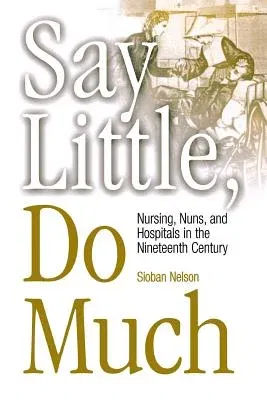Sioban Nelson
(Author)Say Little, Do Much: Nursing and the Establishment of Hospitals by Religious WomenPaperback, 22 September 2003

Qty
1
Turbo
Ships in 2 - 3 days
In Stock
Free Delivery
Cash on Delivery
15 Days
Free Returns
Secure Checkout

Part of Series
Studies in Health, Illness, and Caregiving
Part of Series
Publications of the American Folklore Society. New Series
Print Length
240 pages
Language
English
Publisher
University of Pennsylvania Press
Date Published
22 Sep 2003
ISBN-10
0812217837
ISBN-13
9780812217834
Description
Product Details
Author:
Book Format:
Paperback
Country of Origin:
US
Date Published:
22 September 2003
Dimensions:
23.42 x
14.99 x
1.78 cm
ISBN-10:
0812217837
ISBN-13:
9780812217834
Language:
English
Location:
Philadelphia
Pages:
240
Publisher:
Series:
Weight:
381.02 gm